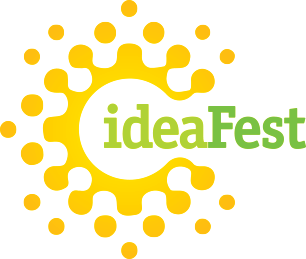Search Presenters & Abstracts
View Presenters & Abstracts by College
All Presenters & Abstracts
Religious Freedom in Northern California: Fighting to Keep Sacred Lands Out of Government Hands
- Jenifer HaileyNative American StudiesUndergraduate Student
This Creative Project compiles the different avenues of research I have studied concerning cultural survival and activism in Northwest California. The sacred spaces in the High Country and the communities that joined together to preserve Native Spirituality and sacred spaces. It also, highlights my work in Special Collections documenting the Lyng v NICPA's case archival materials for online public viewing.
Remote Sensing for Forest Health and Wildfire Mitigation
Jonathan Juarez, Environmental Science & Management Undergraduate Student
College of Natural Resources & SciencesForest ecosystems are vital for maintaining biodiversity, stabilizing soil, and regulating water cycles. However, frequent wildfires, extended droughts, and declining vegetation health are placing these ecosystems at risk. This research will explore how remote sensing tools and available data such as soil moisture, vegetation indices, and phenology can be used to assess forest health and mitigate wildfire risks.
Reparations, Reconciliation and Restitution: An In-Depth Look at Local Native Politics on Indian Island
- Joshua OveringtonNative American StudiesUndergraduate Student
In a sociopolitical climate where hate is so clearly permeating through our country, it is important to recognize battles that have conquered evils of the past in the form of reparations. My research looks at the reconciliation process that has occurred on Indian Island and how the 1862 massacre contextualizes the events taking place today. Through a difficult history and unique form of restitution, Indian Island provides insight into current Native Politics unparalleled anywhere else in the United States.
Replicating the Unreplicable: 3D Printing and its Impact on Artifact Ownership
- Maeve M. MoriartyAnthropologyUndergraduate Student
I examined the emergence of 3D printing within museum contexts to better understand how it impacts artifact ownership. My review and critique of the literature related museums’ usage of 3D printing technology showed that it is largely utilized as a tool for education as well as a method for preserving cultural materials. While educational benefits are central to 3D printing use, the replication of cultural materials promotes the concept of commercialization which may ultimately deemphasize ethical issues. Recognizing and acknowledging the gap in existing narratives will aid future endeavors and allow 3D printing to function as a relevant and respectful tool utilized by museums.
Reserve, Symptoms, Sex and Outcome Following a Single Sports-Related Concussion
- Summer Anne ThornfeldtPsychologyGraduate Student
The study addressed reserve and symptoms following a single sports-related concussion (SRC). Reserve is the biological/cognitive differences between individuals that protect against cognitive changes following a SRC. A SRC can lead to brain damage, and thus a loss of reserve. The ImPACT is a neurocognitive test taken before an athletic season and following a SRC, which was used as a proxy for reserve. Symptoms were explored using PCSS, a symptom checklist. It was found that those with low pre-SRC reserves had better outcomes that those with high pre-SRC reserves, and that females reported more symptoms than males. Reasons for these findings and suggestions for SRC management were explored.
Resilience, Protective Factors and Sustainability in Child Welfare Workers
- Jamie CurtisSocial WorkGraduate Student
The preliminary findings of this research highlight the resiliency, retention, and protective factors of Title IV-E child welfare workers. This study aims to better understand the relationship between the effects of working in a field with high exposure to vicarious trauma, and a social worker's own personal resiliency and coping strategies. The implications of our research suggest several ways agencies and educators can increase the well-being and sustainability of social workers. Improving the well-being of child welfare workers can have a substantial impact on the experiences and outcomes of children and families in our communities.
Resiliency of Homeless College Students in Humboldt County
- Janette MexicanoSocial WorkUndergraduate Student
- Wendy R. ChoateSocial WorkUndergraduate Student
- Haley HerrenSocial WorkUndergraduate Student
- Marissa L. O'NeillSocial WorkStaff
- Pamela H. BowersSocial WorkStaff
The prevalent issue of students experiencing homelessness at Humboldt State University is addressed in our project. We found that students have the resiliency to stay in school and continue pursuing a higher education despite the insecurities of homelessness. We interviewed ten amazing students who gave testimony to the housing crisis affecting Humboldt County. These students found resiliency in their families, their community, their friends, and other effective resources. Their dedication to school was met with integrity, overcoming the barriers preventing them from housing all while pursuing a degree .
Resistance Training and Kinesiophobia Post Hip Replacement
Ian Blank, School of Applied Health Undergraduate Student
College of Professional StudiesA research review looking into the role that progressive resistance training plays in improving kinesiophobia outcomes in post operative hip replacement patients.
Resistance Training on Self-Concept to Improve Gender Affirmation and Community Belonging LGBTQ+ Individuals
Lauren Bankerd, School of Applied Health Undergraduate Student
College of Professional StudiesDetermining the effects of resistance training tailored to LGBTQ+ individuals with the purpose of increasing gender congruence, self-concept, and community belonging.
ResolutionCare Kitchen: Program Development
- Laura GardnerSocial WorkGraduate Student
For my master’s project, I laid the foundation for a kitchen program that will provide an organic, nutrient-rich meal to ResolutionCare patients once a week. The ResolutionCare Kitchen will be dependant upon grants, donations of resources, and volunteer effort. With my research and the support of the local community, staff at ResolutionCare can move forward with developing a pilot for the program in the summer of 2017. Activities of my project included: - exploring potential partners - researching food permit laws - researching ethical and nutritional considerations of the palliative care patient
